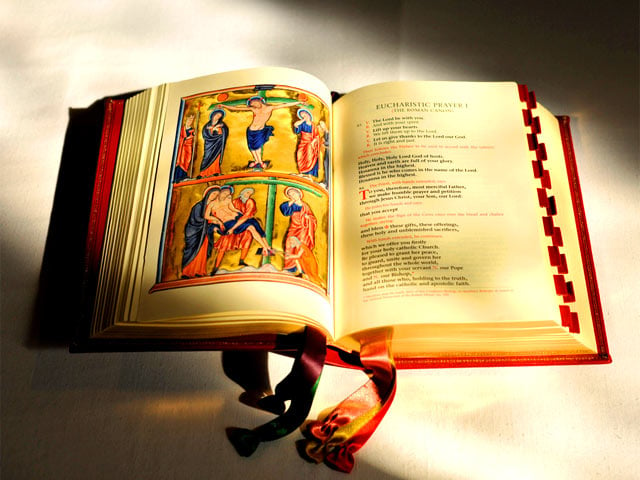- Home
- Our Community
- Our Faith
- Our Ministries
-
Parish Life
- Calendar of Events
- St. Aidan's Video Links
- Parish Blog
- News Archive
- Mass Etiquette and Information
- Ad Orientem News and Facts
- Catholic Links
- Prayers and Announcements
- Luis Dizon Reflections - Archive
- Bulletin
- Contact Us
- Search

For Zion’s Sake (2nd Sunday in Ordinary Time)
Click here for this Sunday’s Readings
Isaiah 60-66 addresses Israel’s post-exilic situation. As we learn from post-exilic books such as Ezra and Nehemiah, Jerusalem was left desolate after the Babylonian Exile, and even after many of the Jews returned to the land, much of the damage remained. The purpose of this passage is to comfort the people by assuring them that despite what has become of the Promised Land, God has not forsaken them, and will restore the land to its former glory. Whatever Israel received in punishment and sorrow for their sins, they will receive back in joy and blessing as a result of their repentance.
This Sunday’s Old Testament passage gives us a description of what God’s restoration will entail. The nations are said to see Zion’s righteousness (v.2). This hearkens back to the promise in Isaiah 2 that Zion will be made into the mountain from which the Law will go forth to all the nations, and they will come to the holy mountain, resulting in peace and justice. They will be crowned with glory (v. 3), and will no longer be called desolate or forsaken (vv. 4). This is meant to assure the people that they are still considered God’s covenant people, and can rest in His promise to be with them always. Finally, they are referred to as God’s bride, which is a motif used to show the intimacy with which God regards His people, and to communicate to them that He loves and protects them as a husband loves his wife (v. 5).
The marriage motif looms large in Scripture, both in the OT and Gospel readings (John 2:1-11). There is an incarnational focus in these readings. As Bergsma and Pitre explain, “The incarnation represents the ‘marriage’ of divine and human natures.”[1] Beyond this, the marriage motif is also important to salvation history. Just as Old Testament Israel is referred to as God’s bride, the New Testament Church is similarly spoken of as the bride of Christ (e.g. Ephesians 5:23ff).
This means that we can look upon the promises in Isaiah as applying to Christians today, and we can rest assured that God rejoices in us and will never forsake us, as long as we remain faithful to Him.
J. Luis Dizon
Notes
[1] John Bergsma and Brant Pitre, A Catholic Introduction to the Bible: The Old Testament (Ignatius Press, 2018), 773.
